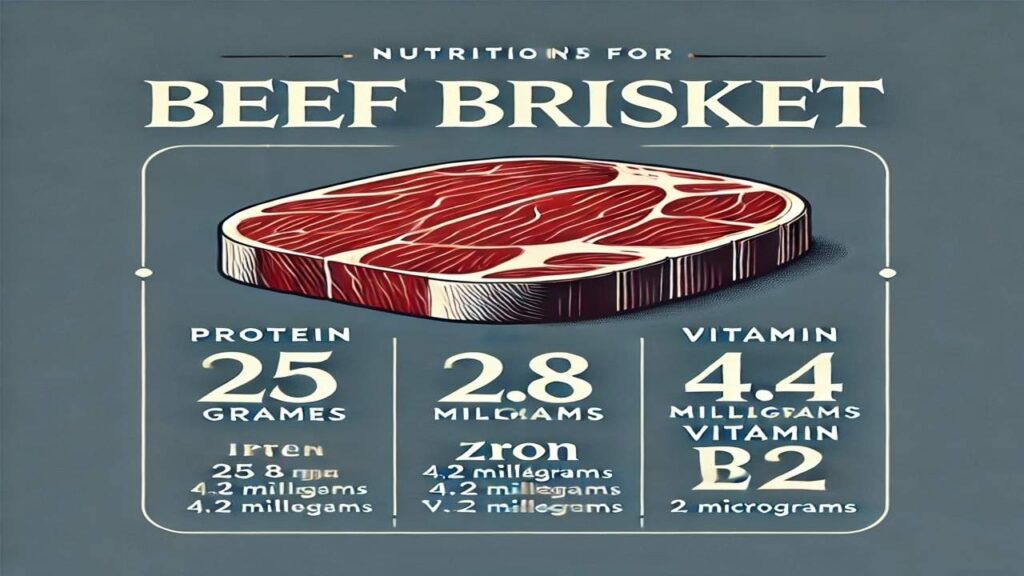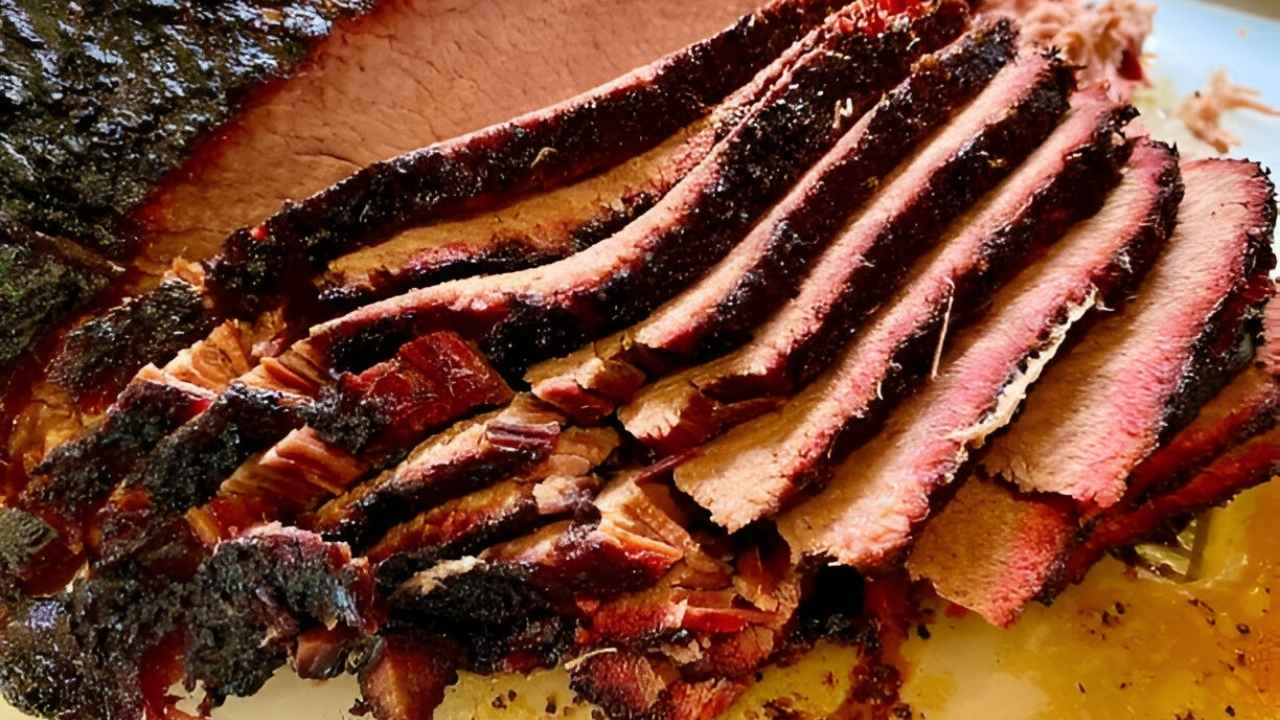If you’ve ever wondered, ‘Is beef brisket healthy?’, you’re not alone. While this beloved cut is famous for its rich flavor and melt-in-your-mouth texture, its nutritional profile often flies under the radar. At Little Cattle Co, we’re passionate about transparency—so let’s unpack brisket’s surprising health benefits, from its high-quality protein to its essential nutrients.
Is Beef Brisket Healthy for You?
Is beef brisket healthy for you? The answer is yes. The protein content in brisket matches that of other beef varieties since your body uses protein to develop its muscles and mend them after wear. Consuming brisket delivers important vitamins together with minerals including iron and zinc and B vitamins that support both wellness and good health.
Brisket Nutrition — How Healthy is Brisket Compared to Other Meats?
Brisket’s healthiness in relation to meat Brisket often has a higher fat content than leaner beef cuts. Although it has rich flavor and tenderness, brisket’s extra fat may compromise heart health if overindulged. Brisket, although fatty, also contains several sources of protein, iron, and B vitamins, all of which are essential nutrients. The method of cooking also matters; traditional methods such as smoking or slow-roasting can produce tender brisket, but might mean added fats or sauces, while healthier cooking methods such as grilling, baking, or broiling can reduce some of the fat while adding flavor.
Myth-Busting Meaty Matters
Myth 1: Red Meat is Unhealthy
Fact: It’s totally possible for red meat to fit into a balanced diet, even beef brisket. The trick is moderation and choosing leaner cuts. High-quality proteins with all essential amino acids and minerals and vitamins such as iron, zinc and B vitamins are present in lean beef.
Myth 2: Cholesterol and Saturated Fat Are The Bad Guys
What we know: Not all fat is the same. It is true that fatty cuts of meat are sometimes harmful — high in saturated fat and cholesterol — but lean beef brisket has less saturated fat than other cuts.
MYTH 3: BEEF BRISKET DOES NOT CONTAIN NUTRIENTS
What: You’re not just getting protein from beef. It is also a great source of B vitamins, which are the key players when it comes to energy, brain function, and cellular metabolism. Also, minerals such as iron assist in the production of blood cells, while zinc enhances your immune system.

Cooking Creativity and Flavour
Here are just a few ways to prepare this versatile cut that will tantalise your taste buds while being mindful of nutrition:
- Smoke baby smoke: Smoking your beef brisket makes it fall-apart tender and infuses it with rich wood smoke flavour.
- Beach Body Brisket: A no-fuss rub or marinade—herbs, spices and healthy oils—will give your brisket flavor without all those calories.
- Talk about a thirst quencher: Not to mention that you get extra nutrients by cooking your beef brisket with a diet soda and veggies for a healthy, one-pot meal.
What are Some Health Benefits of Brisket? Cooking With Brisket
Indulging in lean brisket in moderation presents several health benefits. Brisket contains plenty of protein that stimulates your muscle development and maintains a feeling of satiety over time. This meat provides multiple essential nutrients including iron together with zinc as well as B vitamins which support overall health functions. Brisket emerges tastier when prepared by slow cooking or smoldering for grilled preparation methods. They tend to contain less fat and taste just as good, if not better, than other methods such as frying. It is important to bear in mind moderation given that brisket has more fat than leaner proteins. Can have brisket with vegetable and whole grains meal in balanced plan for best nutritional intake.
Beef is a high-protein meat. You can also have a lower diabetes and heart disease risk, and maintain a normal weight, by choosing leaner meats like brisket. Slow cooking makes it tender. Here are some benefits of brisket beef
Heart Health
With enough time, and a proper method of cooking, even the toughest cuts of meat will turn soft and rewarding. This is one of those cuts, and it’s a favorite for barbecue because of how readily it reacts to long, slow cooking. That’s because this type of cooking is essential to dismantling the collagen that strands the muscle fibers together, yielding an incredibly tender and delicious brisket. Brisket is high in protein, according to the Centers for Disease Control and Prevention. It’s a rich source of many healthy nutrients, including iron, zinc, vitamin B12, folate and selenium.
Becomes one of the healthy fats, in food, there are saturated and monounsaturated acids as well as omega-9 fatty acid called oleic acid that help reduce LDL cholesterol levels.When eaten in moderation, smoked beef brisket is heart-healthy since it has less than 80 mg of cholesterol and just 2 grams of saturated fat and 6 grams of total fat per serving. However, be aware that lean beef cuts like top round or flank steak are lower in calories and contain only trace total saturated fat compared to brisket.
Cancer Prevention
Researchers from Texas A&M University claim that in addition to its high content of good oleic acid, the best beef brisket also contains conjugated linoleic acid, an omega-9 fatty acid that controls cholesterol. It increases “good” HDL cholesterol and decreases bad LDL cholesterol. B vitamins and iron are also abundant in beef brisket. Lean brisket has 5.6 micrograms of vitamin B-12, which supports healthy red blood cells and energy, and 8 milligrams of iron, which is the recommended amount for both men and women. Furthermore, one serving of beef brisket also contains high amount of mineral zinc which covers 38 percent of required daily allowance on per serving basis.
Due to its toughness, brisket is best cooked “low and slow” for hours to develop tender texture and flavor. This method also removes carcinogen that is released when cooking meat at high temperature. While brisket is technically higher in fat content than many other cuts of meat — a fact that helps readers working with recipes create those succulent. Compared to other cuts, the smokey pieces cut includes a lot more monounsaturated fat but less saturated fat. It is also a great source of 64 g per serving for protein, per 8 oz. But due to the calorific count of brisket it should be taken in moderation. Briskets can be paired with fruit and vegetables to lower calorie counts.

Weight Loss
Brisket is a nice, hearty cut of meat, and it’s so tasty when cooked slow and low. It is high in protein, iron and zinc as well. Eating beef can assist you to lose weight. That being said, it’s important to know the calories and fat content in brisket and be mindful of your portion sizes. You must also stay hydrated by drinking water and provide your body with the right nutrients through a varied diet of vegetables and fruits.
Beef brisket contains tough meat from the cow’s breast and lower chest. It includes the pectoral muscles that bear much of the animal’s weight. As a result, the force is clean and threaded with connective tissue. Boasting lean meat and a good source of protein, B vitamins, and minerals, it nonetheless contains more total fat and saturated fat than steak. For example, roasted brisket contains approximately 62 mg of cholesterol per serving. That is somewhat below the recommended daily intake of cholesterol. Furthermore, the majority of the cholesterol in beef brisket is monounsaturated fat, which decreases LDL (bad) cholesterol. It’s also rich in oleic acid, thought to boost HDL cholesterol.
Blood Sugar Control
Brisket may be an excellent protein source, but as with other cuts of meat, it contains higher fat content than comparably lean cuts. Nonetheless, slow-cooking the meat and utilizing low fat liquids can reduce the fat levels and make it a healthier consideration for people with diabetes. It is Rich in Iron; Beef is Rich in Iron, which helps in maintaining blood sugar levels in people with diabetes. The omega-9 fatty acids present in brisket contribute to controlling cholesterol levels in the body. The elevated cholesterol is dangerous because it advances toward diabetic complications and heart disease alongside other medical issues. The high-density lipoprotein (HDL) cholesterol increases while the oleic acid in brisket steak decreases the harmful low-density lipoprotein (LDL) cholesterol.
Select the flat cut of beef for making a brisket. Compared to the fattier point cut, this cut is slimmer. It’s also preferable for shredding for recipes like shredded beef chili or brisket tacos.You should also remember that brisket has more calories and fat than steak. A serving of brisket weighing 84 grams (3 ounces) contains 285 calories and 21 grams of fat, while a serving of steak has only 170 calories and 4 grams of fat.
Strong Teeth
The best way to eat red meat that is actually good for your teeth — too much steak and it just gets more and more stained! Consult your oral health care provider on this matter; many dentists and your orthodontist will tell you to eat beef from time to time to ensure your body has a solid hit of protein to work with. Protein assists teeth in staying healthy by helping them grow well to start with, but it also supports a healthy core well into adulthood too. Beef is also absolutely loaded with calcium, which nobody understands, and that’s really the one thing that keeps your teeth (and your life) feeling strong over the course of your life. If you are stricken with brittle and weak teeth, you don’t have to worry anymore, just boil beef brisket for dinner once in a while!

Beef Brisket Nutritional Information
Brisket– beef cut lean meat has the high protein, vitamins and minerals. A 3-ounce serving of beef brisket contains about:
- Protein: 25 grams
- Iron: 2.8 milligrams
- Zinc: 4.2 milligrams
- Vitamin B12: 2.4 micrograms
Beef brisket is additionally a good source of many other B vitamins, including niacin, riboflavin and thiamin. Additionally, it contains trace levels of magnesium and potassium.
Conclusion
Eating beef brisket in controlled amounts and cooking it healthily leads to becoming a nutritious addition in balanced diets. The meat contains quality protein together with the essential B vitamins B12 and niacin and riboflavin and necessary zinc and iron elements. The nutrients found in brisket help develop muscles to generate energy while boosting the entire body health condition. The elevated fat content of brisket meets monounsaturated fats which support cardiovascular health by balancing cholesterol levels. The nutritional value of brisket remains healthy when consumers prepare the meat through slow-roasting or grilling or smoking while serving it with vegetables and whole grains. The nutritional value of brisket presents multiple benefits to health yet people must practice portion control and moderation when consuming it to preserve heart wellness while avoiding weight complications.
FAQs
Is beef brisket good for diet?
The consumption of brisket in moderate quantities brings various health advantages to your diet. Brisket delivers protein which helps body tissues grow and enables you to feel satiated for extended periods. You can find vital nutrients including iron zinc and B vitamins in addition to the essential nutrients in brisket.
Is beef brisket a good quality meat?
Brisket functions as an outstanding choice of meat that excels when prepared through slow cooking methods and barbecued. The chest section of the cow produces this meat which delivers both excellent taste qualities and tender eating results when prepared correctly.
What’s healthier brisket or chicken?
Certain minerals (iron, magnesium, potassium, and zinc) are more abundant in beef, while vitamins A, E, K, and numerous B vitamins are more abundant in chicken. The fat content is more significant; the fat in beef and chicken impacts cardiovascular health differently, and beef generally has more saturated fat.
